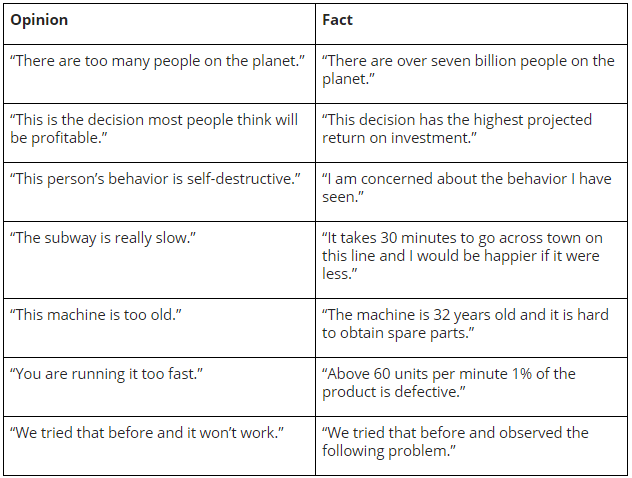Make Fact-Based Decisions
Episode #8 of the course Problem solving by Nat Greene
Intrepid problem solvers,
When solving your own hard problems, you are going to have decision points where, invariably, opinions are going to arise. If you’re working with a team, each member may have different opinions. Great problem solvers aren’t without opinions, but what makes them different is they recognize them for what they are and set them aside.
This may seem obvious. However, in my time, I have found that across business, personal life, and government, many people don’t use facts at all, especially when there are particular motivators to avoid them. But most people believe they are making fact-based decisions when they are, in fact, making opinion-based ones.
Opinion-Based Decisions in Disguise
A common way this is done in business is to use the “wisdom of the group” or the wisdom of experts (internal or external) to make decisions. One might have a vote or a subjective way of ranking different ideas based on the opinions of what ise going on. This kind of decision making is actually encouraged by some problem-solving approaches.
Sometimes problem solvers will use their assumptions about facts, or the assumptions of others, to make decisions, rather than verify the facts themselves. This is a particular problem when something is “known to all.”
Pitfalls of Opinion-Based Decision Making
You have probably seen business situations in which a lot of brainstorming is followed by a vote about what is the highest priority. Wouldn’t it be better if they mathematically worked out which of the ideas could have the greatest objective impact and prioritize based on that? We can do this by using facts to determine which is most objectively valuable for the business.
Opinion-based decision making prevents progress when it is mis-applied to practical problems. You simply will go in the wrong direction and won’t solve the problem.
Good and Bad Fact-Finding
Whether we are trying to solve a problem relating to technology, business, or health, great problem solvers are satisfied by nothing but the ground facts. They are ferocious and persistent about not only getting them, but getting the right facts for the decision.
Consider the shark. It’s a fact that shark bites can be deadly. But this doesn’t support the decision to never swim in the ocean when you are perfectly willing to drive on a Friday night with drunk drivers on the road. The right kind of facts for the situation make the difference.
In data-rich environments, great problem solvers will challenge whether sensor streams, studies, etc. are providing facts. Often problem solvers face “data” that has been highly processed and may no longer represent the relevant reality on the ground.
Know How to Spot Opinions and Facts
If you can argue about it, it’s an opinion. Facts are unarguable and fully verifiable.

Do this well and you will be off to the races. Stay tuned tomorrow to learn how to avoid getting distracted and overwhelmed by staying on target.
—Nat
Recommended video
Recommended book
Fierce Conversations by Susan Scott, where you will learn how to challenge someone (whether it’s about their assertions or something else) and grow your relationship in the meantime.
Share with friends

